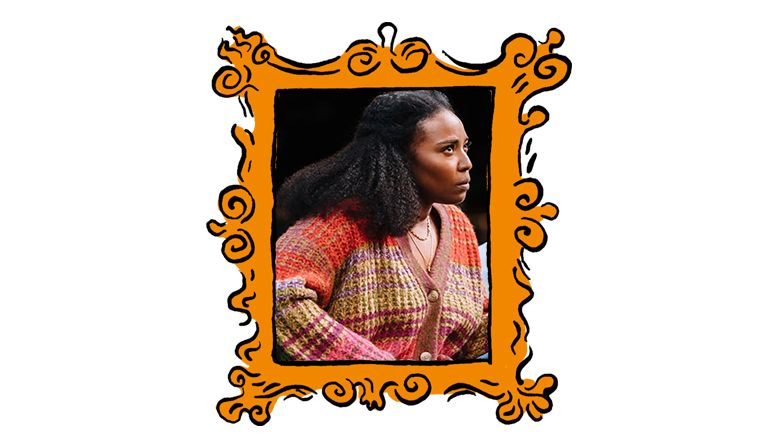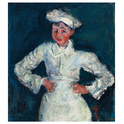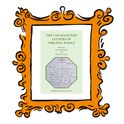The last time I saw a black dildo whipped out in a theatre, it was wielded by Cate Blanchett, and I was sitting next to the Daily Mail’s Quentin Letts as we both watched each other, watching Blanchett.
Jeremy O Harris—the author of Slave Play, which has just opened in London’s Noël Coward Theatre—understands that when we watch sex on stage, who we’re watching alongside is as important as whom we’re watching. With the transfer of his Tony-winning play from New York, Harris kicked off a culture war skirmish by insisting on “Black Out nights”, at which only “black-identifying” theatregoers are welcome to watch this show about modern interracial couples engaging in slavery-themed kink sessions.
When the run was announced in February, even Rishi Sunak got involved, telling journalists that “restricting audiences on the basis of race would be wrong and divisive.” Defenders of Black Out nights observe that black audiences, usually a minority in the theatre, experience black-themed plays differently when they’re not conscious of white eyes parsing their reactions. (And certainly, during Slave Play, I spotted a fair few white faces anxiously checking in with black neighbours, visibly waiting for cues that it was okay to laugh.) But whether you view them as neo-segregation or a community’s safe space, the Black Out nights won’t be the biggest problem with this sophomoric, internally inconsistent take on sex and race.
Slave Play was written in Harris’s first year at Yale School of Drama—and it shows. Only a student playwright could take the shock value of kinky sex and push it so far without building any transformative drama around it. The concept is simple: three mixed-race couples with problems in the bedroom agree to take part in a dubious process called “antebellum sexual performance therapy”, in which they act out fantasies of rape and power exploitation on Virginian plantations and then—true horror of horrors—are forced to talk about it in group therapy. There’s a spectacularly comic safeword.
The resulting show compromises 20 minutes of giggle-cringe fetish play; an hour of pinpoint satire that superbly spoofs the absurdities of political activism masquerading as therapy; and then a disjointed 20 minutes that aim to teach us that our therapist grifters were, after all, right all along. Wherein lies the problem.
Robert O’Hara—Harris’s former teacher and another godfather of New York’s “queer black theatre moment”—directs with a keen eye for the unspoken dynamics in the room, as politically anxious “facilitators” Patricia (Irene Sofia Lucio) and Teá (Chalia La Tour) compete to manage their group. (They are, it turns out, a struggling couple themselves.) But given Patricia and Teá’s absurdist levels of self-indulgence—encouraging the gang to respond with jazz hands of affirmation when a participant describes an orgasm, railing against the establishment while name-dropping their time at Yale and Stanford—the only way to read this lengthy midsection is as an evisceration of what the right would term “wokeness”. British audiences—both white and black—will likely empathise with Kit Harrington as confused British photographer Jim, unable to comprehended why his African-American wife Kaneisha (Olivia Washington) has dragged him to this exercise in sexual and emotional humiliation. There’s an extended exercise in which he refuses to let her call him “Massa”. Poor bloke.
The switcheroo—that Patricia and Teá are, in effect, right—is where things fall apart. There’s an incomprehensible theory about victims of “racial trauma” being unusually susceptible to earworms (which can be exorcised by orgasms). The most nuanced portrait of a relationship that emerges from this mess is the play’s only male-male relationship, with a heartfelt and vulnerable performance from Fisayo Akinade as a black man coming to realise that his performatively leftist boyfriend sees him as trophy, useful for showing off his own rejection of whiteness. The women are flat. Annie McNamara’s Alana is an ageing “Karen” who wants only to dominate her mixed-race toyboy; Washington’s Kaneisha teaches nothing more to us than that black women in relationships with white men are, apparently, looking to be brutalised in bed. This may seem “progressive” to playwrights in New York, but here it seems like a sexism as old as the hills.
Slave Play has built a marketing campaign around the provocation that New York, which bedecked it with Tonys, is advanced enough for its revelations, while London may “not be ready”. “Is London ready?” tweeted Harris above the production announcement, “I was told you weren’t…” The truth is that London will be slightly bored by this piece of student drama. The time when we shocked by historical rape fantasies on stage is long gone—1980, Howard Brenton’s The Romans in Britain, when last I checked—and the concept of Europeans being lectured on prudishness by Americans is gently entertaining.
If questions continue to be asked about whether this production needs Black Out nights, it is because there’s insufficient substance to suggest that a shift in the audience dynamic would illuminate it for anyone. By contrast, Dave Harris’s recent Tambo & Bones at the Theatre Royal Stratford East earned its right to play with the audience composition and then some: setting up a final act in which its characters present a lecture to an imagined all-black audience, for reasons that slowly become apparent. Without wishing to give away spoilers—and, if it returns, it will be a far better use of Prospect readers’ time than Slave Play—I can imagine that the experience of watching Tambo & Bones in an all-black audience adds an extra level of chill, entirely missing here.
Instead, Slave Play is an all too familiar phenomenon: an American act of cultural narcissism. Are we ready for it? We’ve been putting up with it for a century.
‘Slave Play’ is an act of cultural narcissism
The Black Out nights are far from the biggest problem with this inconsistent take on sex and race
July 11, 2024













